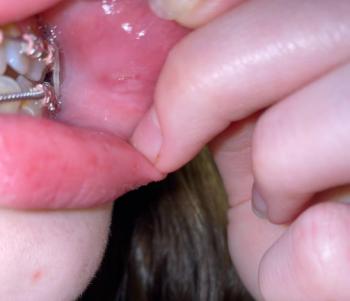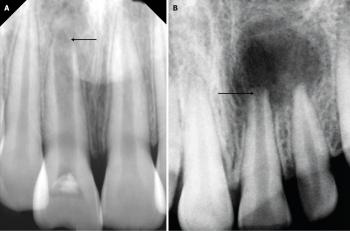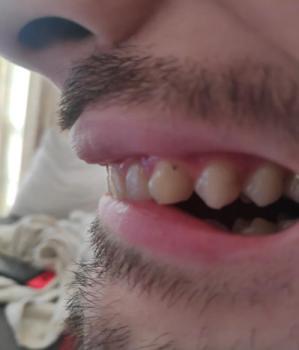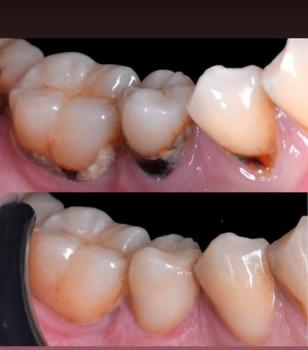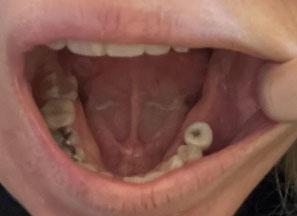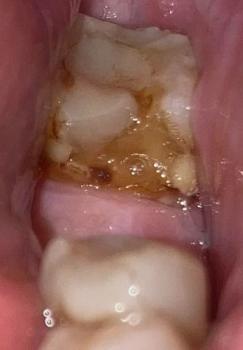Strong Teeth, Fresh Breath, Brighter You.
Dental Implants best Solution to Fix your Teeth in the Cebu Philippines
For many Filipinos, a confident smile is important, but missing or damaged teeth can affect not just your appearance but also your overall health. If you're looking for a permanent solution to fix your teeth, dental implants are an excellent option available right here in the Philippines.
What Are Dental Implants?
Cebu Dental implants are artificial tooth roots made of titanium that are surgically placed into your jawbone. They serve as a strong foundation for replacement teeth . These implants are engineering designed to blend seamlessly with your natural teeth, giving you a smile that looks and feels completely natural.
Why Choose Dental Implants?
-
Long-Lasting Solution: Unlike dentures or bridges, dental implants are a permanent solution that can last a lifetime with proper care.
-
Natural Look and Feel: Implants are designed to look, feel, and function just like your natural teeth, so you can eat, speak, and smile with confidence.
-
Prevents Bone Loss: When you lose a tooth, the jawbone can start to deteriorate over time. Dental implants help preserve the bone structure and prevent facial sagging.
-
Improved Comfort and Convenience: Unlike removable dentures that can slip or cause discomfort, implants are secure and comfortable, making them feel just like your own teeth.
-
Better Oral Health: Implants don’t require altering nearby teeth as a bridge might, which means more of your natural teeth are left intact, improving long-term oral health.
The Dental Implant Process
-
Initial Consultation: Your dentist will assess your oral health, take X-rays, and determine if you’re a good candidate for implants. This is important to ensure that your jawbone is strong enough to support the implant.
-
Implant Placement: The dentist will surgically place the titanium post into your jawbone. This acts as the root of the new tooth.
-
Healing Period: After the implant is placed, there’s a healing period of a few months during which the implant fuses with the bone. This process is called osseointegration and is crucial for the implant’s stability.
-
Abutment Placement: Once healed, an abutment (a small connector) is placed on the implant to hold the new tooth.
-
Crown Placement: Finally, a custom-made crown is attached to the abutment, completing the process. The crown is designed to match your natural teeth, ensuring a perfect fit.
Why Get Dental Implants in the Philippines?
- Expert Dental Care: Filipino dentists are highly skilled and use the latest technology to ensure the best outcomes for patients.
- Affordable Options: Dental care in the Philippines is often more affordable compared to other countries, making it accessible for many Filipinos.
- Quality Materials: Clinics in the Philippines use high-quality materials for implants, ensuring durability and a natural appearance.
Caring for Your Dental Implants
Maintaining your dental implants is simple—just follow good oral hygiene practices:
- Brush and Floss Daily: Just like natural teeth, implants need regular brushing and flossing to stay clean and healthy.
- Regular Dental Check-Ups: Visit your dentist regularly to ensure your implants remain in good condition and to catch any potential issues early.
Final Thoughts
Dental implants are a game-changer for anyone looking to fix missing or damaged teeth. With expert care available across the Philippines, especially in major cities like Cebu and Manila, you can regain your smile and confidence with a solution that looks, feels, and functions just like your natural teeth.
Thinking about dental implants? Visit a trusted dental clinic in the Philippines today and take the first step toward a brighter, healthier smile!
6 Common Causes of Dental Implant Issues and Sudden Changes in Your Teeth
Dental implants are generally a reliable and long-lasting solution for missing teeth, but sometimes, issues can arise that cause sudden changes in your teeth or implant performance. Understanding these potential problems can help you take the necessary steps to address them.
1. Peri-Implantitis
- What It Is: Peri-implantitis is an infection that affects the gum and bone around a dental implant. It's similar to gum disease and can cause inflammation, bone loss, and even implant failure if not treated.
- Causes: Poor oral hygiene, smoking, or pre-existing gum disease can increase the risk of peri-implantitis.
- Symptoms: Red, swollen gums, bleeding around the implant, or a bad taste in your mouth may indicate peri-implantitis.
2. Implant Failure
- What It Is: While rare, dental implants can fail to integrate with the bone, leading to looseness or implant rejection.
- Causes: Implant failure can be due to insufficient bone density, infection, excessive biting forces, or poor surgical technique.
- Symptoms: A loose implant, discomfort, or the implant not feeling secure could be signs of failure.
3. Bone Loss
- What It Is: Bone loss around the implant can compromise its stability and lead to issues with the surrounding teeth.
- Causes: Peri-implantitis, excessive pressure on the implant, or untreated gum disease can contribute to bone loss.
- Symptoms: Changes in the fit of your implant crown, gaps forming between teeth, or a feeling that your bite has shifted can signal bone loss.
4. Gum Recession
- What It Is: Gum recession occurs when the gum tissue around the implant pulls away, exposing more of the implant or tooth roots.
- Causes: Aggressive brushing, gum disease, or improper implant placement can lead to gum recession.
- Symptoms: You might notice that your implant appears longer, or you may feel sensitivity near the implant site.
5. Bite Changes
- What It Is: Changes in your bite, or how your teeth come together, can affect both natural teeth and implants.
- Causes: Over time, teeth can shift due to tooth loss, grinding (bruxism), or the natural aging process, altering your bite.
- Symptoms: You might notice discomfort when chewing, or that your teeth no longer fit together as they used to.
6. Mechanical Issues
- What It Is: Components of the dental implant, such as the abutment or crown, can sometimes become loose or damaged.
- Causes: Wear and tear over time, or improper forces during chewing, can lead to these mechanical issues.
- Symptoms: A loose crown or abutment, difficulty chewing, or noticing a clicking sound may indicate a problem.
What to Do If You Notice Changes
If you experience any sudden changes or discomfort with your dental implants, it's important to see your dentist as soon as possible. Early intervention can prevent further complications and help restore your oral health.
Preventing Dental Implant Issues
- Maintain Good Oral Hygiene: Brush and floss regularly to keep your gums and teeth healthy.
- Attend Regular Check-Ups: Regular dental visits allow your dentist to monitor the health of your implants and address any issues early.
- Avoid Smoking: Smoking can increase the risk of implant failure and gum disease.
- Be Mindful of Your Bite: If you grind your teeth or notice changes in your bite, discuss it with your dentist to prevent damage to your implants.


